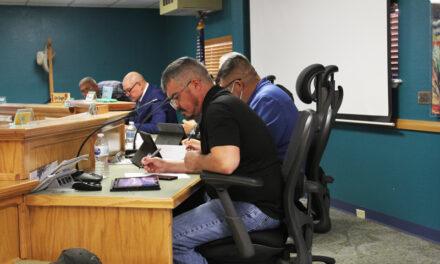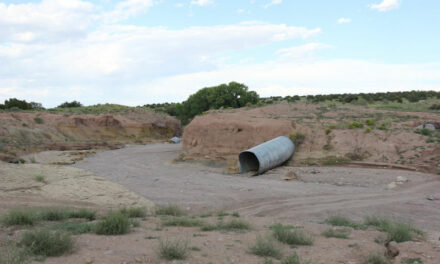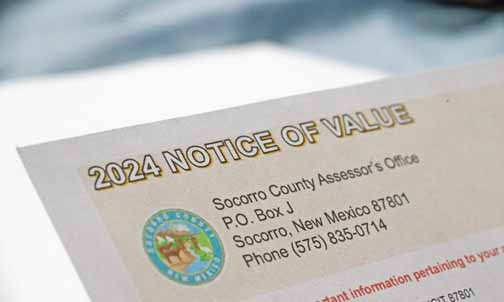An online meeting and workshop last Thursday hosted by the citizen group Middle Rio Grande Water Advocates and environmental nonprofit Amigos Bravos focused on the need and aspirations for the new water planning law passed by the legislature (SB 337) earlier this year.
The bill, as passed, pointed out that existing water planning statutes were no longer addressing the current and future water shortages.
“The legislature unanimously passed this new regional water resilience planning and implementation law,” said Rachel Conn, deputy director of Amigos Bravos. “Across the state, regions and the communities within them have different water supplies and water uses. Most have one thing in common. Current water demands are more than diminished and declining water supplies can sustain.”
The water advocates say the legislation was needed because the existing 1987 water planning statute does not address current and future water shortages.
“Surface and groundwaters are already over-appropriated. Several aquifers are being rapidly depleted, and surface water supply is projected to fall 25 percent in 50 years,” said Norm Gaume, president of New Mexico Water Advocates and past Director of the New Mexico Interstate Stream Commission.

Norm Gaume, Middle Rio Grande Water Advocates president.
Courtesy photo
He asserts that “accelerating adaptation is necessary to prevent a horrible tragedy of the water commons caused by continuing the status quo.”
According to Gaume, users will switch to groundwater when water supplies are short in the river.
“We are short of surface water in most years, and the state has no ability at this point to basically regulate water use under existing permits,” he said. “Surface water availability is significantly reduced in the last two decades with drought on top of climate change, and will decline 25 percent more by 2070.”
He said surface water users turn to groundwater pumping when surface supplies are short. “Pumping increases as groundwater recharge declines, “ Gaume said. “Pumping will accelerate the declines in the aquifer at the same time the climate change is reducing the groundwater recharge of the aquifer.
“And so pumping groundwater now puts a debt that the river will pay back to the groundwater system far into the future when there’s less water,” he said. “There are no legal mechanisms for state capacity to prevent this, and every year that passes without a solution forecloses opportunities for us to get the resilient, sustainable water future that I think we all agree we would love to see in this beloved state of ours.”
He said the state has lacked the capacity and practical, legal methods to enforce against illegal uses, waste of water, and overuse.
“Every year that passes without water governance, oriented to surviving increased water scarcity in the 21st century and beyond, inequitably forecloses future opportunities,” he said. “Now it is up to the Interstate Stream Commission and the people to implement the plan.”
The significance of the new state water plan is that it gives regions the power to design a plan suiting their individual priorities.
Conn said the new statute requires the New Mexico Interstate Stream Commission to create a new statewide program of regional water resilience planning, designate the planning regions, and establish the planning program design and details through rule-making and guidelines.
“Regional water planning is important because it ensures that communities’ values are recognized in planning,” Conn said. “It’s not a top-down approach just from Santa Fe, and the regions are really working together to identify priorities in those areas of the state.”
She said for business as well; it provides the ability for regional custom-make solutions to water challenges that may not be as pressing in other regions or on a statewide level.
“So the law will empower each region to establish its own water management values,” she said.
Over 50 people attended the Zoom meeting on June 15. Another online interactive water plan meeting will be on July 20 at 6:30 p.m. Go to mrgwateradvocates.org for more information or to register.


















